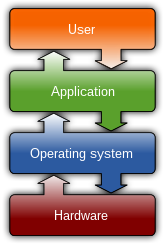Ebook - Linux Kernel Development
Linux Kernel Development details the design and implementation of the Linux kernel, presenting the content in a manner that is beneficial to those who wish to write and develop kernel code. This book is for anyone who wants a fun, practical approach to the Linux kernel.
The author, a core kernel developer, shares valuable knowledge and experience on the very latest Linux kernel.

The book discusses the major subsystems and features of the Linux kernel, including their design and implementation, their purpose and goals, and their interfaces. Specific topics covered include: process management, scheduling, time management and timers, system call interface, memory addressing and management, caching layers, VFS, kernel synchronization, debugging, and the kernel community.
The book covers the new 2.6 Linux kernel, and includes numerous sections on its new features, such as the new O(1) scheduler, the new I/O schedulers, the new block layer, and kernel preemption.
This book is an authoritative, practical guide that helps programmers better understand the Linux kernel, and to write and develop kernel code.
Download Ebook



.jpg)
